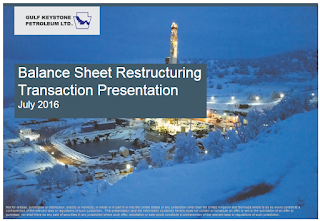On 10th June, Det Norske announced that it will merge with BP Norge through a share purchase transaction to create the leading independent E&P company on the Norwegian Continental Shelf. The company will be renamed Aker BP, with Aker and BP as main industrial shareholders holding 40% and 30% of the company respectively; the remaining 30% in Aker BP will be held by Det Norske’s other current shareholders. Note that Aker is currently Det Norske’s main shareholder with a 49.99% of the company. The effective date of the transaction is 1st January 2016 and it is expected to close at the end of 2016, subject to approval by the relevant authorities.
For some time, BP have been looking to sell down their Norwegian position but having been unable to do so for cash, it is interesting to note that they have now accepted shares and follows the trend of
Statoil’s recent acquisition of a shareholding in Lundin. The BP branding on the name of the new company now suggests that they may see themselves as longer term players in the Norwegian Continental Shelf.
Det Norske will issue 135.1million new shares at a price of NOK80/share to BP as consideration for all the shares in BP Norge. BP Norge will subsequently be a wholly owned subsidiary of Det Norske. Concurrently, Aker will acquire 33.8million of these shares from BP at the same share price to achieve the agreed-upon ownership structure. The acquisition of BP Norge includes the assets, a tax loss of USD267million and a net cash position of USD178million. All of BP Norge's roughly 850 employees will transfer to the combined organization upon completion of the deal.
Aker BP will hold a portfolio of 97 licences on the Norwegian Continental Shelf, of which 46 are operated. The combined company will have an estimated 723mmboe 2P reserves, with joint production of c120mboepd, with scope to organically double production to more than 250mboepd by the early 2020s. Aker BP will benefit from the combined strength of Det Norske's efficient, streamlined operating model and BP's long experience in Norwegian offshore operations, asset knowledge, technical skills and international experience. Det Norske and BP believe the larger independent company will be able to actively pursue M&A opportunities on the NCS.
Øyvind Eriksen, chairman of the board of directors of Det Norske commented: "Aker BP will leverage on Det Norske's efficient operations, BP's international capabilities and Aker's 175 years of industrial experience. Together, we are establishing a strong platform for creating value for our shareholders through our unique industrial capabilities, a world-class asset base, and financial robustness."
BP group chief executive Bob Dudley commented: "BP and Aker have matured a close collaboration through decades, and we are pleased to take advantage of the industrial expertise of both companies to create a large independent E&P company. The Norwegian Continental Shelf represents a significant opportunity going forward and we are looking forward to working together with Aker to unlock the long term value of the company through growth and efficient operations. This innovative deal demonstrates how we can adapt our business model with strong and talented partners to remain competitive and grow where we see long-term benefit for our shareholders."
























